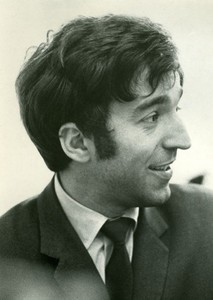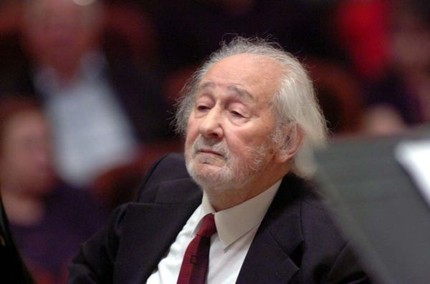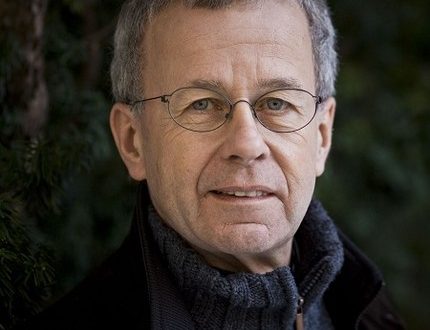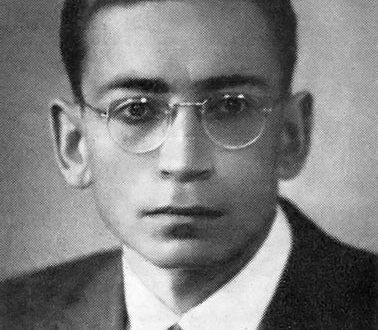
Vladimir Ashkenazy (Vladimir Ashkenazy) |
Vladimir Ashkenazy

For a good five decades, Vladimir Ashkenazy has been one of the most famous pianists of his generation. His ascent was quite rapid, although it was by no means without complications: there were periods of creative doubts, successes alternated with failures. And yet it is a fact: back in the early 60s, reviewers approached the assessment of his art with the most demanding criteria, often comparing it with recognized and much more venerable colleagues. So, in the magazine “Soviet Music” one could read the following description of his interpretation of “Pictures at an Exhibition” by Mussorgsky: “The inspired sound of “Pictures” by S. Richter is memorable, L. Oborin’s interpretation is significant and interesting. V. Ashkenazy in his own way reveals a brilliant composition, plays it with noble restraint, meaningfulness and filigree finishing of details. With the richness of colors, the unity and integrity of the idea were preserved.
On the pages of this site, various musical competitions are mentioned every now and then. Alas, it’s only natural – whether we like it or not – that they have become the main tool for promoting talent today, and, really, they have introduced most of the famous artists. The creative fate of Ashkenazi is characteristic and remarkable in this regard: he managed to successfully pass the crucible of three, perhaps the most authoritative and difficult competitions of our time. After the second prize in Warsaw (1955), he won the highest awards at the Queen Elisabeth competition in Brussels (1956) and the P. I. Tchaikovsky competition in Moscow (1962).
The extraordinary musical talent of Ashkenazi manifested itself very early, and was obviously associated with family tradition. Vladimir’s father is a pop pianist David Ashkenazi, widely known to this day in the USSR, a first-class master of his craft, whose virtuosity has always aroused admiration. Excellent preparation was added to heredity, first Vladimir studied at the Central Music School with teacher Anaila Sumbatyan, and then at the Moscow Conservatory with Professor Lev Oborin. If we recall how complex and rich the program of each of the three competitions in which he had to perform, it becomes clear that by the time he graduated from the conservatory, the pianist had mastered a very wide and varied repertoire. At that early time, he was distinguished by the universalism of performing passions (which is not so rare). In any case, Chopin’s lyrics quite organically combined with the expression of Prokofiev’s sonatas. And in any interpretation, the traits characteristic of a young pianist invariably showed up: explosive impulsiveness, relief and convexity of phrasing, a keen sense of sound color, the ability to maintain the dynamics of development, the movement of thought.
Of course, excellent technical equipment was added to all this. Under his fingers, the piano texture always appeared exceptionally dense, saturated, but at the same time, the slightest nuances did not disappear for hearing. In a word, by the beginning of the 60s it was a real master. And it attracted the attention of critics. One of the reviewers wrote: “Speaking of Ashkenazi, one usually admires his virtuoso data. Indeed, he is an outstanding virtuoso, not in the distorted sense of the word that has spread lately (the ability to play a wide variety of passages surprisingly quickly), but in its true sense. The young pianist not only has phenomenally dexterous and strong, perfectly trained fingers, he is fluent in a diverse and beautiful palette of piano sounds. In essence, this characteristic is also applicable to today’s Vladimir Ashkenazi, although at the same time it lacks only one, but perhaps the most important feature that has appeared over the years: artistic, artistic maturity. Every year the pianist sets himself more and more daring and serious creative tasks, continues to improve his interpretations of Chopin, Liszt, plays Beethoven and Schubert more and more, conquering with originality and scale also in the works of Bach and Mozart, Tchaikovsky and Rachmaninov, Brahms and Ravel…
In 1961, shortly before the memorable for him Second Tchaikovsky Competition. Vladimir Ashkenazy met the young Icelandic pianist Sophie Johannsdottir, who was then an intern at the Moscow Conservatory. Soon they became husband and wife, and two years later the couple settled in England. In 1968, Ashkenazi settled in Reykjavik and accepted Icelandic citizenship, and ten years later Lucerne became his main “residence”. All these years, he continues to give concerts with increasing intensity, performs with the best orchestras in the world, records a lot on records – and these records have become very widespread. Among them, perhaps, the recordings of all the concertos of Beethoven and Rachmaninov, as well as Chopin’s records, are especially popular.
Since the mid-seventies, the recognized master of modern pianism, like a number of his colleagues, has successfully mastered a second profession – conducting. Already in 1981, he became the first permanent guest conductor of the London Philharmonic Orchestra, and now performs at the podium in many countries. From 1987 to 1994 he was the conductor of the Royal Philharmonic Orchestra, and also conducted the Cleveland Symphony Orchestra, the Berlin Radio Orchestra. But at the same time, the concerts of the Ashkenazi pianist do not become rarer and arouse the same great interest of the audience as before.
Since the 1960s, Ashkenazy has made numerous recordings for various record labels. He performed and recorded all piano works by Chopin, Rachmaninov, Scriabin, Brahms, Liszt, as well as five piano concertos by Prokofiev. Ashkenazy is a seven-time Grammy Award winner for Classical Music Performance. Among the musicians with whom he collaborated are Itzhak Perlman, Georg Solti. As a conductor with various orchestras, he performed and recorded all the symphonies of Sibelius, Rachmaninov and Shostakovich.
Ashkenazi’s autobiographical book Beyond the Frontiers was published in 1985.





